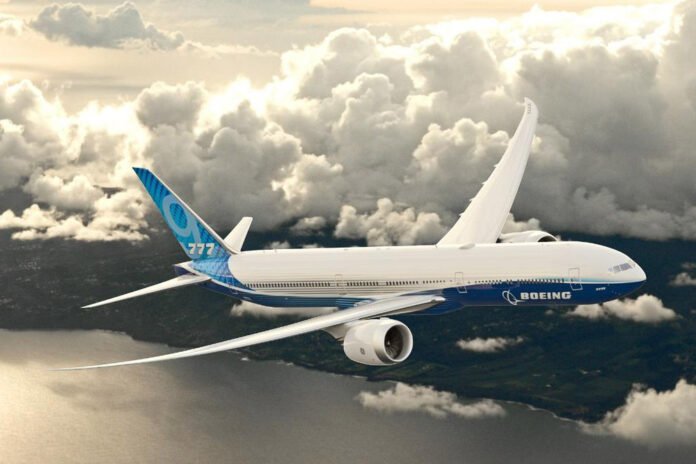The matter is of a new private airline of the country. It has only 25 aircraft. Recently 14 of them in airplanes’Rudder Control System’ (The notice was given by DGCA under the Ministry of Civil Aviation regarding Rudder Control System. It is noteworthy that ‘Rudder Control System’ Helps the aircraft to remain on its designated path in case of engine failure. Apart from this, it is also helpful in keeping the aircraft in the right direction during take-off and landing.
In today’s busy life, we all give a lot of importance to time. If we have to travel anywhere, we try to complete the journey as soon as possible. In such a situation, people who can afford air travel prefer to travel by flight. Similarly, those who want special service in air travel also take the services of private charter companies and prefer to travel as per their convenience. Air travel figures in our country have increased rapidly in the last few decades. For this, the entry of private companies into the civil aviation sector is considered to be an important reason.
With the arrival of more and more private airlines, air passengers have also got the option to travel as per their convenience. But the way these private sector operators often play with the safety of passengers with the intention of making profits is worrying. Every day we come across news that planes of many private companies had to be ‘grounded’ due to old engines or spare parts. Imagine, if an aircraft meets with an accident due to a faulty engine or an incompetent pilot, who will be at fault, the airline company or the Civil Aviation Ministry, or both?
The latest example is that of a new private airline in the country which has only 25 aircraft. Recently, a notice was issued by DGCA under the Ministry of Civil Aviation regarding the ‘rudder control system’ in 14 of those aircraft. It is worth noting that the ‘Rudder Control System’ helps the aircraft to follow its prescribed path in case of engine failure. Apart from this, it is also helpful in keeping the aircraft in the right direction during take-off and landing.
The ‘rudder control system’ can be used both electronically and manually. In most circumstances the ‘rudder control system’ is not used mid-air or during travel. For example, if you are driving your car on the road at a speed of 100 km/h and if you steer your car even slightly to the right or left, then you can imagine how serious an accident can happen. In such a situation, if the ‘rudder control system’ gets jammed or if there is any technical problem in it due to lack of proper maintenance, then the aircraft may also suffer an accident.
If any airline, be it a scheduled airline or a non-scheduled airline, does not have experienced pilots, it will not be able to deal with this emergency. Here the question arises that why the Civil Aviation Ministry and DGCA are so lenient towards selected private airlines and some private charter companies that they do not rigorously check their aircraft and pilots?
The investigation should not only be rigorous but should also be sudden so that every airline operator remains afraid of playing with the safety of passengers due to greed for profit and corruption. At the same time, there must be such technical experts in DGCA who check the planes and pilots as per the rules, not with the intention of supplying money but only from the safety point of view. Corrupt officials who are making money by becoming a part of the government machinery should also be investigated by the Vigilance Department of the Ministry.
Recently the Federal Aviation Administration (FAA) issued a safety alert informing operators about the possibility of a restricted or jammed ‘rudder control system’ in certain Boeing 737 aircraft equipped with Collins Aerospace SVO-730 Rudder Rollout Guidance Actuators (RRGAs). Was warned. The warning further stated that moisture accumulation could cause the rudder control system to jam during flight. Not only this, the ‘rudder control system’ may jam even during landing.
Flight crew are advised to follow Boeing’s procedures for dealing with restricted ‘rudder control system’ conditions and check using the autopilot system. Airlines should be familiar with the alerts and relevant Boeing guidance to ensure safe operations. Boeing had already informed Boeing 737 operators affected by the ‘rudder control system’ problem in August. Now the FAA emphasizes that existing automated checks can detect limitations of the ‘rudder control system’ before landing.
It is noteworthy that America’s Federal Aviation Administration has issued a warning to airlines around the world to thoroughly investigate this technical fault. However, this private airline of India has clarified that this notice will not affect its aircraft operations and it will try to overcome the shortage. But according to aviation experts, this being found in 14 out of 25 aircraft of the same company in India is a serious problem. But here the question arises whether this happened because of this new company earning more profits in less time?
Does this company lack technical experts? Was this error deliberately ignored by some select officials of DGCA, Government of India? Whatever the reason, it must be investigated because no one, be it a private airline or a private charter company, has the right to play with the safety of passengers. It remains to be seen how the Civil Aviation Ministry or DGCA investigates these shortcomings in the future and what punishment does it give to these airline companies for such mistakes?

